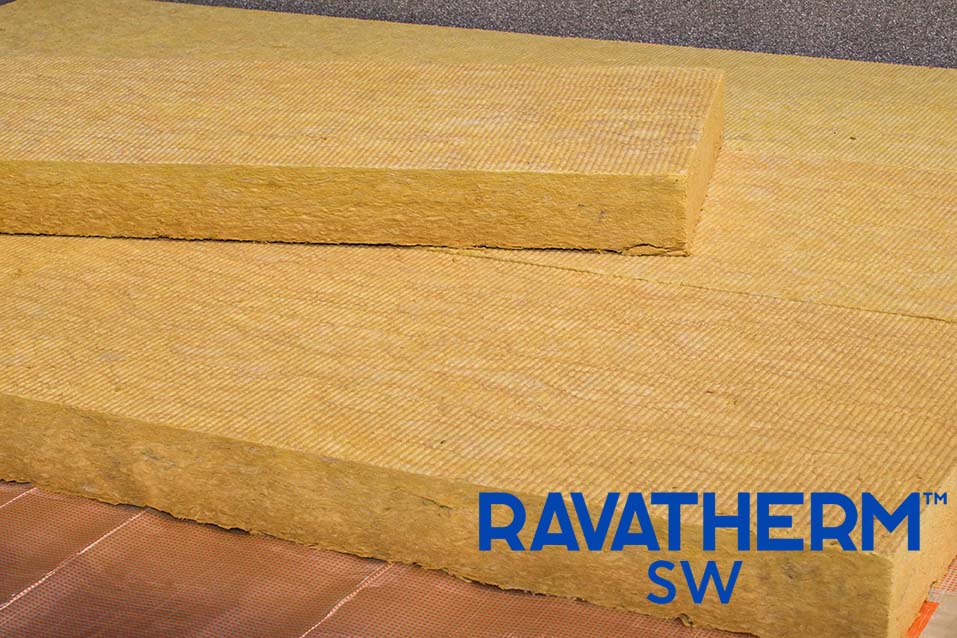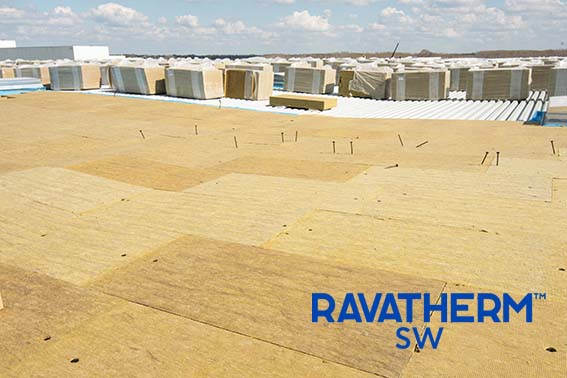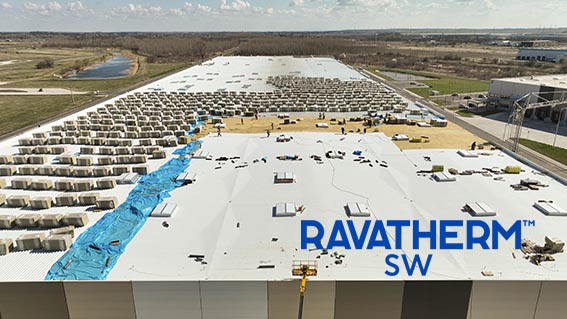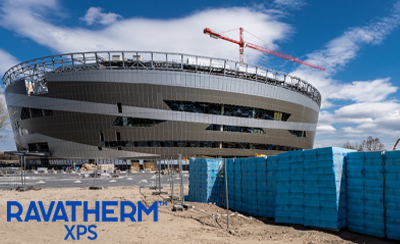In addition to the popular closed-cell polystyrene foam thermal insulation, the well-known RAVATHERM product line will be expanded with stonewool thermal insulation starting this year.
RAVATHERM SW
RAVATHERM SW Stonewool products are made using a special production process, during which high-quality, widely applicable mineral fiber thermal insulation boards are formed during the melting and fiberization of natural basalt stone. Due to the RAVATHERM SW stone wool thermal insulation material, it is non-combustible and its melting point is above 1000 ºC. The products are hydrophobicized in their entire cross-section and meet the strict quality requirements of stone wool products.

Thanks to the basalt stone raw material and the special production process, RAVATHERM SW thermal insulations have fire protection classification A1 – non-combustible, excellent thermal insulation, excellent sound insulation and a high degree of vapour permeability.
The manufacturer of RAVATHERM thermal insulations is Ravago Building Solutions. The trade and production of building materials has been present in the history of the Ravago Group since the 1960s. Recognizing the importance of recycling, the company that initially operated only in Belgium at a local level gradually grew into a worldwide company that today offers various construction solutions throughout Europe as a distributor and manufacturer. The latest thermal insulation material factory also fits into this line, in which stone wool products made with the latest technology and natural raw materials contribute significantly to the reduction of greenhouse gas emissions through their energy savings. The plant also strives for the smallest possible ecological footprint in the production process, therefore, in accordance with our environmentally conscious thinking, production is carried out according to the ISO14001 environmental management system.
RAVATHERM SW thermal insulation products convey value to everyone from production to installation.

ENVIRONMENTAL PROTECTION
From an environmental point of view, it contributes to the reduction of global CO2 emissions through continuous energy savings. It can be recycled at the end of its life cycle.
OPERATION
The contractor can work with high-quality, easy-to-work and simple, easy-to-install materials. Thus, saving money and working time, you can count on a shorter commitment period.
APPLICATION
The contractor can work with high-quality, easy-to-work and simple, easy-to-install materials. Thus, saving money and working time, you can count on a shorter commitment period.
INDUSTRIAL BUILDING FLAT ROOF
The issue of flat roof thermal insulation of industrial halls is particularly important in terms of both winter and summer heat protection. The insulation of lightweight flat roofs with RAVATHERM SW rock wool is particularly advantageous due to the material’s excellent sound and heat insulation properties and fire resistance. In addition to these, the non-combustible stone wool is durable, holds its size and shape, and has good moisture permeability.
That is why we highly recommend our RAVATHERM SW Roof products for thermal insulation of flat roofs in industrial buildings. The compressive strength of RAVATHERM SW products can vary between 40-80KPa depending on demand. In the case of multi-layer laying, the lower layer has smaller density and the upper layer has higher compressive strength. In this way, the thermal insulation layer can withstand heavy loads, such as construction or maintenance traffic, without any problems.

The point load capacity of our stone wool products intended for flat roofs is extremely high, so the edge of the waterproofing along the fastening does not curl up, it can be easily spliced and welded.
RAVATHERM SW thermal insulation provides a suitable base for waterproofing of any material without the use of a separate additional separation layer, and thanks to its optimally large board size, it can be installed quickly and economically.
During the thermal insulation process, it is necessary to use a suitable quality, continuous vapour barrier layer, and during its laying, care must always be taken to overlap the boards ont he roof. When trying to avoid thermal bridges, it is important to choose and install the right fixing anchors in addition to proper thermal insulation.



Leave a Reply